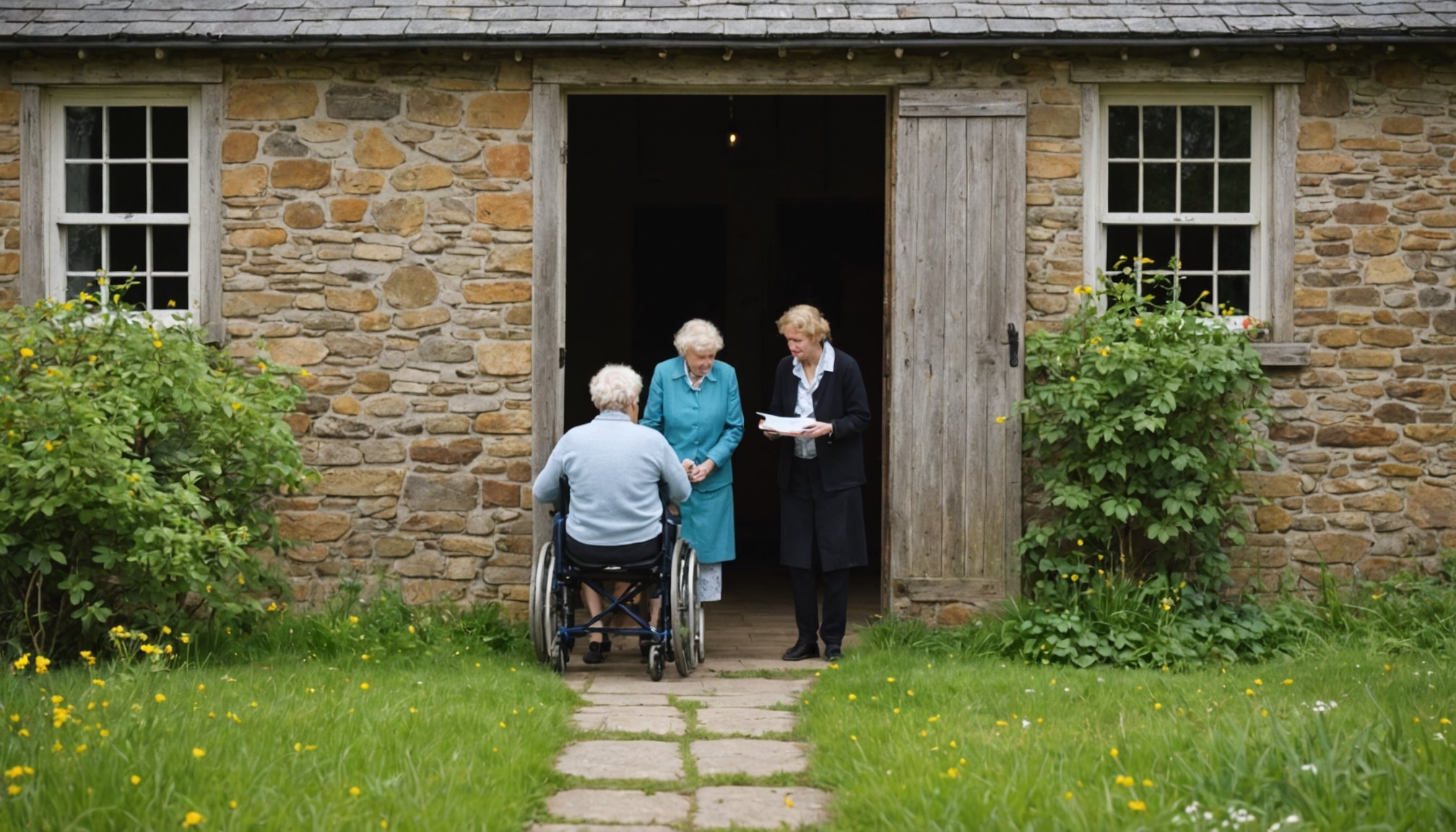Providing palliative care to individuals with life-limiting illnesses is a crucial aspect of healthcare. This is especially true in rural areas, where access to services can be limited. In the UK, health professionals face various challenges in delivering high-quality palliative care in these regions. Factors such as geographical isolation, limited resources, and a shortage of trained personnel can hinder effective patient support. This article aims to explore the specific obstacles faced by healthcare providers in rural settings, discuss strategies to improve access and quality of care, and highlight the role of education and community engagement in overcoming these challenges.
Understanding the Challenges of Palliative Care in Rural Areas
Rural areas in the UK often present unique challenges for delivering palliative care. One of the primary issues is the accessibility of healthcare services. Many patients live far from hospitals or specialized treatment centers, making regular visits difficult. With long distances to travel, patients may experience increased physical and emotional stress, which can exacerbate their health conditions.
Also read : What are the implications of artificial intelligence on the future practice of UK health professionals?
Moreover, the limited availability of trained professionals in these regions can significantly affect the quality of care. Rural health systems often suffer from workforce shortages, leaving healthcare providers stretched thin. This can lead to a lack of continuity in care, which is essential for effective palliative management. With fewer specialists in oncology and pain management available, patients may not receive the comprehensive support they need.
Additionally, the lack of community resources can hinder effective palliative care. Many rural communities do not have hospices or dedicated facilities for end-of-life care, forcing patients to rely on general hospitals or home care options that may not be adequately equipped to manage complex symptoms.
Also read : How can UK health professionals address the unique needs of aging populations in their care?
Cultural factors also play a role in how palliative care is perceived and delivered in rural settings. Some communities may have different beliefs about end-of-life care, which can impact patients’ willingness to seek help. Understanding these cultural nuances is fundamental for UK health professionals aiming to provide compassionate and effective care.
In summary, the challenges of providing palliative care in rural areas stem from geographical, workforce, resource, and cultural factors. Addressing these issues is essential for improving the overall quality of life for patients facing life-limiting illnesses.
Strategies for Improving Access to Palliative Care in Rural Communities
To enhance palliative care access in rural areas, UK health professionals can implement several strategies. One effective approach is leveraging technology to bridge the gap between patients and healthcare providers. Telemedicine, for example, allows patients to consult with specialists from the comfort of their homes. This can be especially beneficial for those with mobility issues or those living in isolated locations. Through video calls and online platforms, healthcare providers can offer consultations, follow-ups, and even symptom management advice.
Furthermore, the development of outreach programs can significantly improve care delivery. By creating mobile health clinics or regular outreach visits, healthcare teams can reach underserved communities. These initiatives can also provide educational resources to raise awareness about palliative care options and encourage early intervention. Training local professionals and community members can further enhance these outreach efforts, ensuring that they are culturally relevant and effective.
In addition, collaboration with local organizations and volunteers can aid in extending palliative services. By partnering with community groups, health professionals can tap into local knowledge and resources to provide more tailored care. These collaborations can also foster a supportive community environment, allowing families to feel more connected and supported during challenging times.
Lastly, advocating for policy changes that prioritize funding and resources for rural health services is essential. Increased investment in workforce training and development will equip more professionals with the skills needed for effective palliative care. Moreover, ensuring that insurance programs cover palliative services can help alleviate financial burdens on patients and families, making care more accessible.
In conclusion, by adopting innovative strategies such as telemedicine, outreach programs, community collaborations, and policy advocacy, UK health professionals can significantly improve access to palliative care in rural communities.
The Role of Education and Training in Palliative Care
Education and training are pivotal in enhancing the quality of palliative care provided in rural settings. For UK health professionals, obtaining specialized knowledge in palliative care can empower them to address complex patient needs effectively. This includes understanding symptom management, communication strategies, and ethical considerations surrounding end-of-life care.
One way to enhance education is through the incorporation of palliative care training in medical and nursing school curricula. By ensuring that all healthcare professionals receive fundamental training in palliative care, we can cultivate a workforce that is well-equipped to handle the demands of this specialty. Specialized courses and certification programs focusing on palliative care can also help existing professionals gain deeper insights and skills.
Furthermore, ongoing professional development opportunities should be made available to keep healthcare providers up to date with the latest evidence-based practices. Utilizing platforms like PubMed and Google Scholar for research and data on effective palliative care strategies can foster continuous learning. By staying informed about the latest studies and innovations in care, professionals can apply best practices in their work, ultimately benefiting their patients.
Mentorship programs can also play a critical role in professional education. By connecting experienced palliative care specialists with those in training, knowledge transfer can occur in a practical setting. This relationship can provide invaluable insights into day-to-day challenges and success stories, fostering an environment of support and collaboration.
Finally, engaging with the community to promote awareness and understanding of palliative care can enhance training outcomes. Workshops and community seminars can educate both professionals and families about palliative care principles, improving overall acceptance and support for patients requiring these essential services.
In summary, investing in education and training for health professionals is essential for improving the quality of palliative care in rural areas. By equipping healthcare providers with the right knowledge and skills, we can ensure that patients receive the compassionate, effective care they deserve.
Community Engagement and Support Systems for Palliative Care
Community engagement is crucial in addressing the challenges faced by palliative care providers in rural areas. By fostering a supportive environment, healthcare professionals can enhance the care experience for patients and their families. One effective way to promote community engagement is through the establishment of local support groups. These groups can provide emotional and practical support for families navigating the complexities of end-of-life care. They can share experiences, offer advice, and create a sense of belonging among individuals facing similar situations.
Moreover, involving community members in the planning and delivery of palliative care services can ensure that care is tailored to local needs. Local stakeholders can provide insights into cultural beliefs and preferences that influence care decisions. This tailored approach can significantly improve patients’ satisfaction and comfort with the services provided.
Volunteers also play a significant role in supporting palliative care initiatives in rural areas. Training volunteers to assist with non-medical tasks can alleviate some of the pressures on healthcare professionals. Volunteers can help with companionship, respite care for family caregivers, or even provide transportation for patients needing to attend medical appointments. This support can enhance the overall well-being of patients and their families.
Moreover, community awareness campaigns can educate the public about the palliative care options available to them. By increasing knowledge about what palliative care entails, patients may be more inclined to seek help earlier, leading to better outcomes. Collaborating with local organizations, schools, and healthcare facilities to host educational events can promote understanding and acceptance of palliative care.
Finally, fostering partnerships with other healthcare entities can enhance service delivery. Collaborating with hospices, community health organizations, and mental health services can create a more comprehensive support system. This integrated approach can help to ensure that all aspects of a patient’s well-being are addressed, from physical to emotional and spiritual needs.
In conclusion, engaging the community in palliative care efforts can create a supportive environment that enhances the quality of care provided to patients in rural areas. By building strong support systems and fostering collaboration, UK health professionals can ensure that individuals facing serious illnesses receive the compassionate care they deserve.
Providing effective palliative care in rural areas of the UK is a multifaceted challenge. However, by understanding the specific obstacles faced by healthcare providers, implementing innovative strategies, investing in education, and fostering community engagement, we can significantly improve the quality of life for patients with life-limiting illnesses. Health professionals must prioritize collaboration, advocacy, and empathy in their practice to ensure that all individuals, regardless of their geographical location, have access to the palliative care they need. By working together, we can create a more inclusive and effective healthcare system that values the dignity and comfort of every patient.











